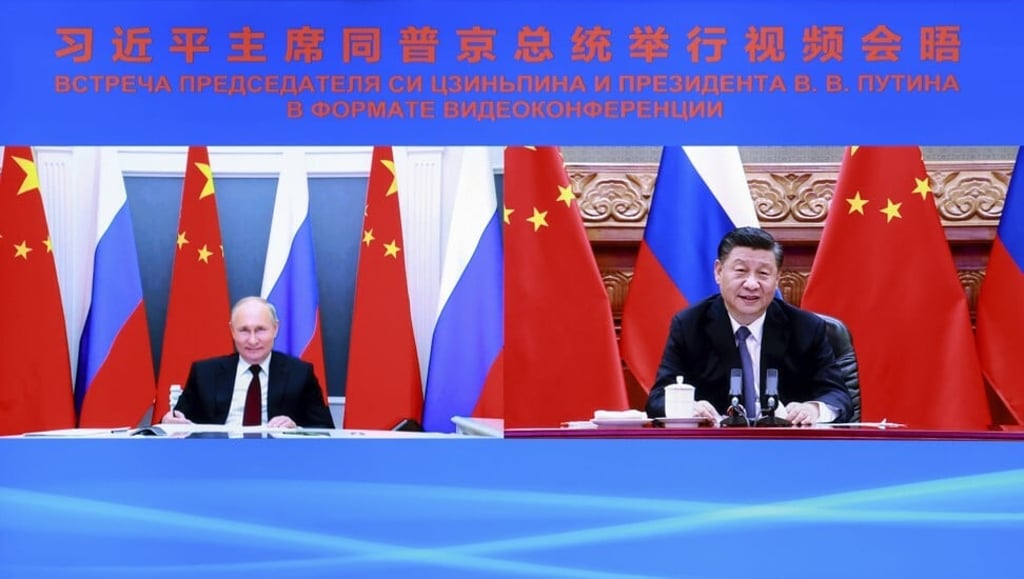Advertisement
China and Russia pledge cooperation on data security, Arctic sea route
- Virtual summit sends signal to Washington that the neighbouring powers are united on a range of emerging issues
- Both countries have been engaged in an increasingly bitter competition with the US and cybersecurity is a key battleground
3-MIN READ3-MIN
48

Laura Zhouin Beijing
Russia has endorsed a Beijing-led initiative on data security, in the latest sign of cooperation between the two neighbours in emerging areas amid growing animosity from Washington.
In a lengthy joint statement issued after a virtual summit between President Xi Jinping and his Russian counterpart Vladimir Putin, the two sides also pledged to deepen cooperation on cyberspace, the Arctic and infrastructure – issues that have seen intensifying competition between China and the US.
Beijing and Moscow also reaffirmed the importance of their strategic partnership by renewing their 20-year-old friendship treaty.
Advertisement
Beijing launched its data security initiative in September to counter the Trump administration’s Clean Network Programme which aims to restrict Chinese tech companies – including Huawei Technologies – from accessing the 5G network and other sectors in the US and at least 30 like-minded countries and territories.
Advertisement
Chinese officials and diplomats have called for countries to join the initiative and in March signed an agreement with the League of Arab States to cooperate on data security. The pledge with Russia is the latest significant breakthrough.
Advertisement
Select Voice
Select Speed
1.00x
